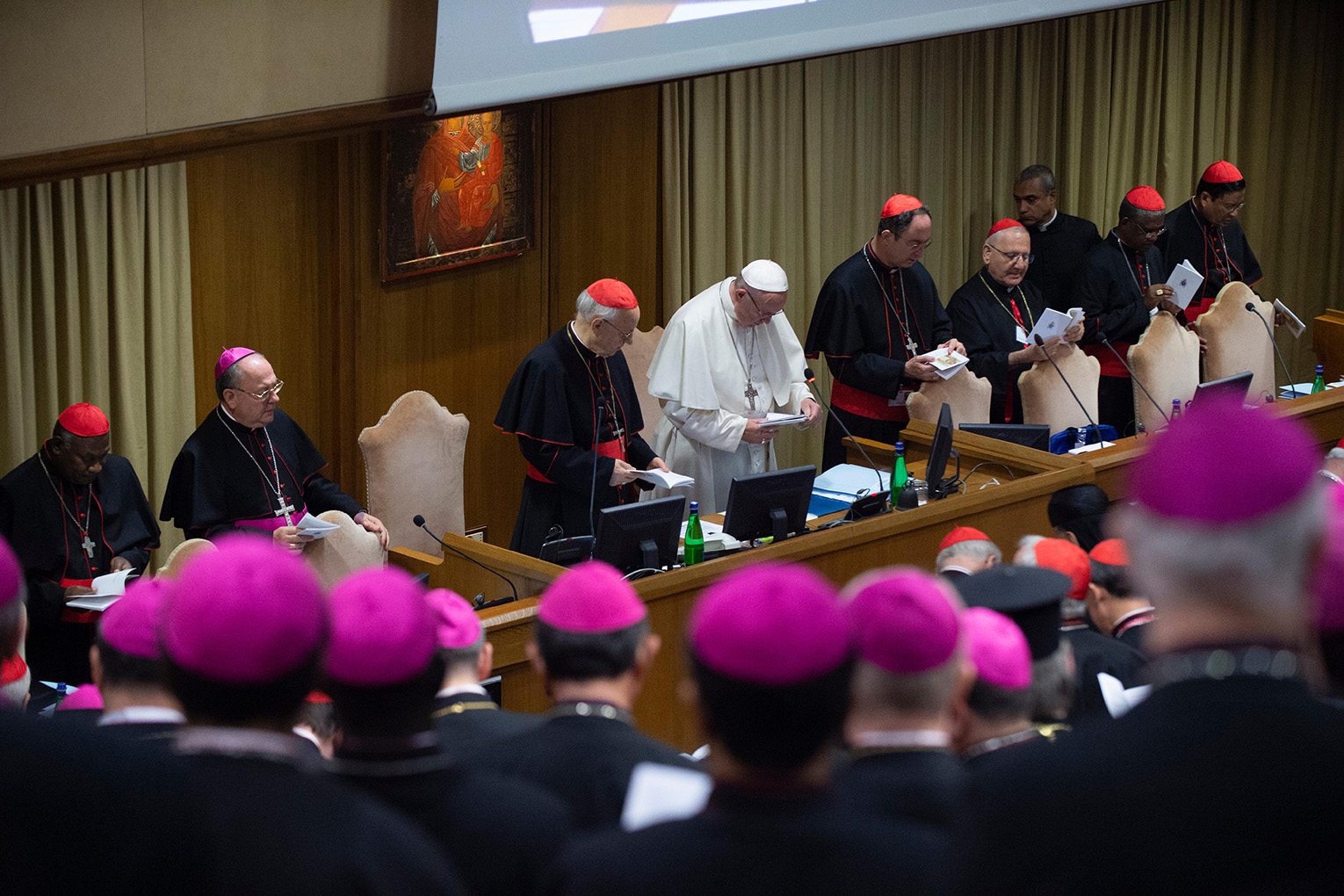
July 21, 2021
VATICAN— The general secretariat of the Synod of Bishops on Tuesday named the members of three groups helping to prepare the 2023 synod on synodality.
It listed the names on July 20, just three months before the start of a two-year preparatory phase involving Catholic dioceses worldwide.
A synod is a meeting of bishops gathered to discuss a topic of theological or pastoral significance, to prepare a document of advice or counsel to the pope.
The theme for the upcoming assembly is “For a synodal Church: communion, participation, and mission.”
The general secretariat listed the members of a steering committee, a commission for theology, and a commission for methodology.
The steering committee has five members: Archbishop Erio Castellucci, who leads the Italian dioceses of Modena-Nonantola and Carpi; Fr. Giacomo Costa, S.J., president of the San Fedele Cultural Foundation of Milan and director of the magazine Aggiornamenti Sociali; Mgsr. Pierangelo Sequeri, president of the Pontifical Theological Institute John Paul II for the Sciences of Marriage and the Family; Fr. Dario Vitali, full professor in the Faculty of Theology at the Pontifical Gregorian University; and Myriam Wijlens, professor of canon law at the University of Erfurt, Germany.
The commission for theology has 25 members from around the world. The commission, which is coordinated by Bishop Luis Marín de San Martín, one of two under-secretaries of the Synod of Bishops, assists the synod secretariat by reviewing texts, presenting theological proposals “for the development of synodality,” and creating and sharing “materials for theological deepening,” according to the synod’s website.
The commission’s members include three Jesuits: Fr. Paul Béré, from Burkina Faso, the first African to win the prestigious Ratzinger Prize for theology; Fr. Santiago Madrigal Terrazas, a professor at the Comillas Pontifical University in Spain; and Fr. Christoph Theobald, a Franco-German theologian based at the Centre Sèvres in Paris.
The commission for methodology, coordinated by Sr. Nathalie Becquart, under-secretary of the Synod of Bishops, has nine members, including four women: Cristina Inogés Sanz, from Spain, Christina Kheng Li Lin, from Singapore, Sr. Hermenegild Makoro, C.P.S., from South Africa, and Susan Pascoe from Australia.
Also among the commission’s members is Fr. David McCallum, S.J., executive director of the Discerning Leadership Program, a collaboration between Le Moyne College in Syracuse, New York, and other institutions.
The commission’s tasks include collecting “best practices for synodal processes at all levels,” proposing “methodologies for the synodal process in all its phases,” creating a “a brochure/website on best practices,” and working on “the methodology/process for the celebration of the Synod of Bishops in October 2023.”
Earlier this month, Pope Francis named the Jesuit Cardinal Jean-Claude Hollerich as the relator general of the synod on synodality.
Hollerich, the president of the Commission of the Bishops’ Conferences of the European Union (COMECE), will help to oversee the gathering of the world’s bishops in Rome.
The synod on synodality will open with a “diocesan phase” in October 2021 and conclude with the XVI Ordinary General Assembly of the Synod of Bishops at the Vatican in October 2023.
Pope Francis will “inaugurate the synodal path” over the weekend of Oct. 9-10 with an opening session and a Mass. All dioceses are invited also to offer an opening Mass on Sunday, Oct. 17.
During the diocesan phase, each bishop is asked to undertake a consultation process with the local Church from Oct. 17, 2021, to April 2022.
The Vatican will then release an instrumentum laboris (working document) in September 2022 for a period of “pre-synodal discernment in continental assemblies,” which will influence a second draft of the working document to be published before June 2023.
The process will culminate in a meeting of bishops at the Vatican in October 2023.
